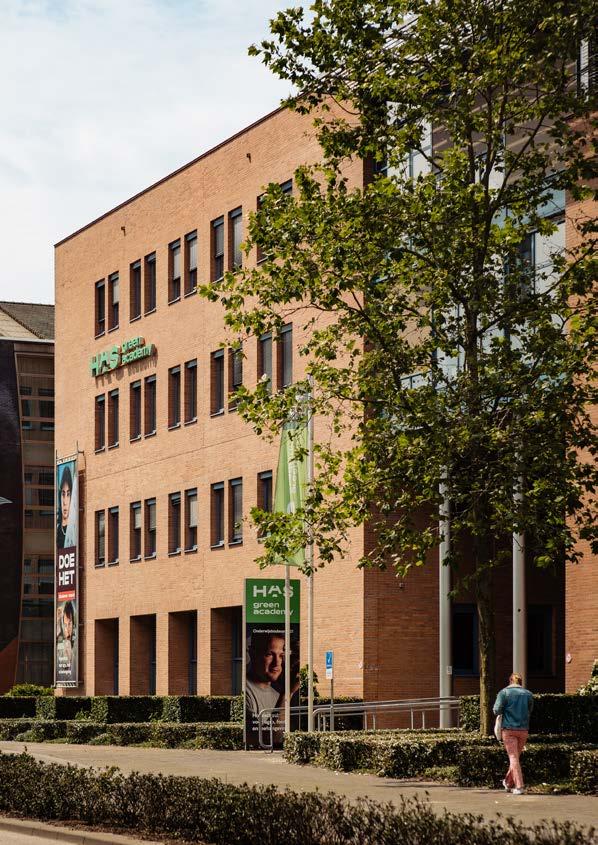




This guide provides you with the most important information you will need to find your way around ‘s-Hertogenbosch (Den Bosch) and the campus. It’s worth taking the time to read it thoroughly, to get you off to a smooth start at HAS green academy!
You know you’ve lived in the Netherlands when:
• you think orange is a fashionable colour
• you can ride a bike with 2 crates of Heineken on the back
• you think cloudy weather 200 days a year is absolutely normal
• you know what “dropjes” are and you know how to pronounce it
• you think any hill higher than 100 meters is a mountain
• you’re familiar with the concept of ‘traffic jam flirting’
• you start calling everyone by their first name
• you’ve discovered what ‘gezelligheid’ means.

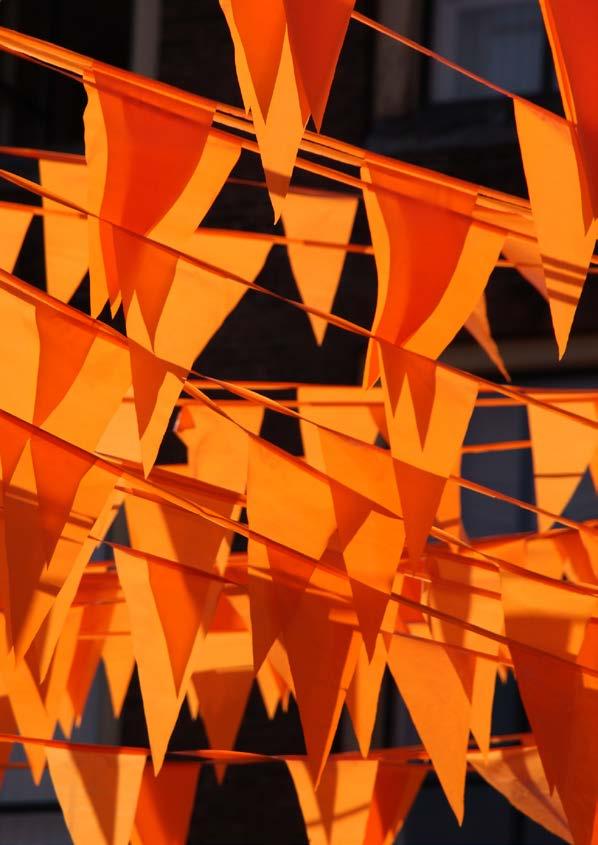
The Netherlands is a small, yet very diverse country. The Dutch are known as a nation of traders, who are open to change and are progressive in their economic as well as political policies. The Dutch way of doing business internationally has been famous for hundreds of years.
The Netherlands is responsible for a large share of the world’s trade in a number of sectors, including in particular dairy and meat production, floriculture, bulb growing, nursery stock and glasshouse horticulture. Using the latest technology and making optimum use of available resources, the Netherlands has been one of the largest exporters of agricultural products in the world for a long time. This success in agricultural trade is not only the result of highly effective production methods, but also due to sound management, marketing and logistics.
Of course, the Netherlands is best known for its windmills, clogs, cheese and tulips, but also its liberal attitudes towards controversial subjects such as drug use, prostitution, abortion and euthanasia.
These are all still aspects of Dutch culture and have, without doubt, influenced Dutch society. Living in the Netherlands, however, you’ll soon realise that there is much more to the country and its people than this stereotype suggests... so come and find out for yourself!
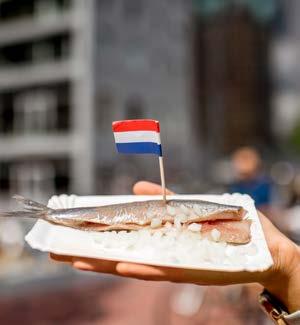
The Dutch generally prefer an ‘organised’ life. Most Dutch people plan their days in advance, using their diaries intensively. When they get together, it’s often by appointment. It is generally considered impolite not to show up, or to be late (although in the south it is not unusual for colleagues or guests to arrive a few minutes late). If you’re invited to someone’s home, it should be clear from the invitation, whether or not you can expect a meal.
Dutch people are often very direct in their communication towards others. This can sometimes come as a bit of a surprise to people from other cultures, and it can easily lead to misunderstandings. On the other hand, it also makes communication quite straightforward. So, if you have a problem or a request, don’t be afraid to approach your lecturers, student adviser, or the staff of the International Office.
The traditional Dutch food is based on the ‘farmer’s cuisine’ and is usually simple, but filling. The Dutch generally have only one warm meal a day, usually in the early evening around 6 pm. A traditional Dutch meal consists of boiled potatoes, vegetables and meat or fish, sometimes preceded by soup, and followed by a dessert of pudding or yoghurt. The Dutch have also adopted lots of international recipes, especially from Indonesia, Surinam, China and other European countries, such as Italy. So traditional Dutch food is now eaten much less often. For lunch, the Dutch generally take their own sandwiches from home.
Traditionally, the northern part of the Netherlands is Protestant, and the southern part Roman Catholic. But this has changed greatly over the past few decades. Fewer than a third of Dutch people have a religious faith and nearly one in four describe themselves as atheists, according to the latest census of belief in the Netherlands.
The Dutch consider themselves to be tolerant and open towards other cultures. There are now as many religions as there are ethnic groups in the Netherlands, which is a lot. Christianity and Islam are most common.
The city of Den Bosch has a lot of one-way streets. These generally apply to cars, but check the signs for exceptions. Cyclists, for example, are often allowed to cycle ‘the wrong way’ down a one-way street. Parking is expensive and spaces can be hard to find. The easiest way to get around is by bike or by bus.
Almost all streets have separate bike lanes. At various places all around the city, you’ll find special parking areas for bikes. There is also free secure bike parking at the central railway station, and near the city centre. For further details, type in ‘bicycle storage’ on the tourist information office website: visitbrabant.com
Make sure you lock your bike at all times. Bike locks and padlocks in all shapes and sizes are available in cycle shops and departments stores. There is a bike shop at Den Bosch railway station. You can also find bike shops in the centre of the city, or you can look for a second hand bike on marktplaats.nl (in Dutch only).
If you are driving or cycling in the city or the suburbs you need to be aware of the ‘right has priority’ rule. Even if you think you’re on the main road, this may not be the case. If there are no markings on a road joining from the right (to indicate that they need to stop or give way) you MUST let any traffic, including bikes, go first.
You will see people driving or cycling over a pedestrian crossing when someone is waiting to cross. Although this is common, it is illegal – and dangerous. So, please let the pedestrian cross!
If you travel by public transport frequently, we recommend you to buy a pre-paid ‘OV chip’ travel card. This is the payment method for public transport in the Netherlands. You can purchase an ‘anonymous’ card at the service counter in the central railway station. The ‘personal’ OV chip card can only be bought online. More information about the OV chip card can be found at ov-chipkaart.nl.You can use your OV chip card for busses, trams and trains. Remember to check in and check out on every journey!
If you don’t use the train that often, you can also buy a single-use card at the ticket machines, using your bank or credit card. However, you will have to pay an extra fee. So it’s cheaper to use your OV chip card. To find out from which platform your train leaves, you need to look at the screens in the central hall of the station, or on the signs at each platform.
You can plan your journey by public transportation in advance on the travel website: 9292.nl. Dutch Railways (NS) also have a journey planner: ns.nl. Both 9292 and NS have an app you can download.
Dutch Railways do not offer discounts for foreign students. However, with an off-peak season ticket (Dal Voordeel) you can travel at a 40% discount outside peak hours. Check out www.ns.nl/en for more information. Occasionally, different stores such as Kruidvat, Hema and Blokker sell cheap tickets (train and/or other public transportation) for a weekend or for a day. The following website (in Dutch only) shows the current special offers: treinreiziger.nl.
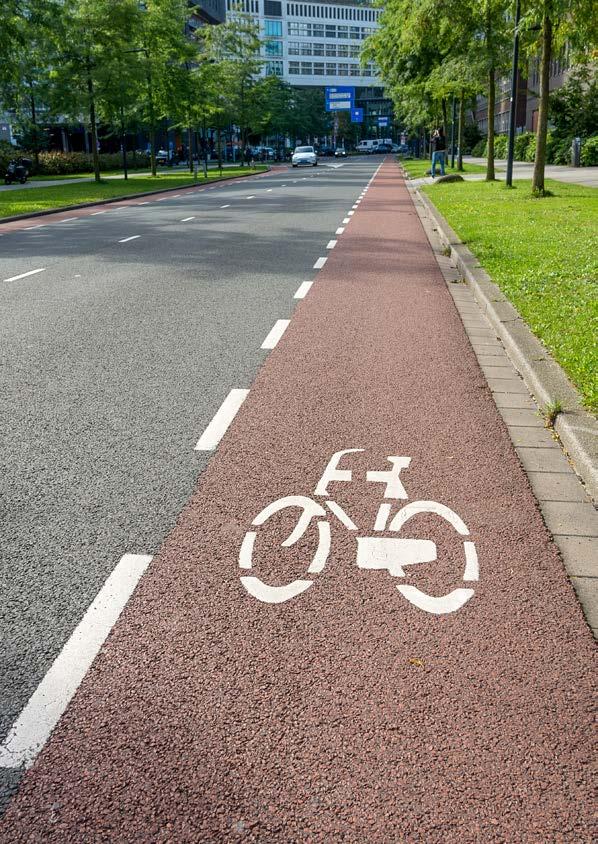
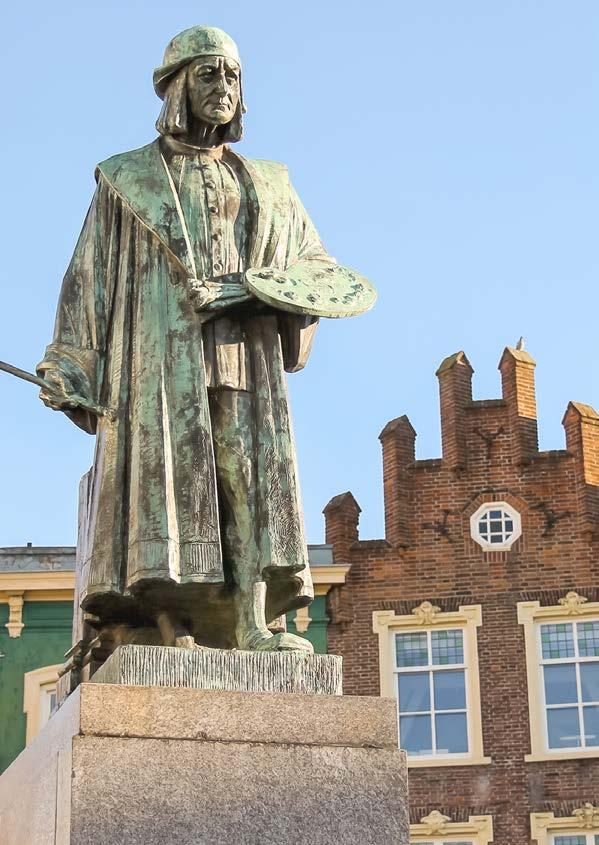
‘s-Hertogenbosch (or Den Bosch in short) is a lively city in the south of the Netherlands. It is the administrative centre of the province of North-Brabant and the focal point of a region of rapid economic growth. Den Bosch has approximately 151,000 inhabitants and and known for being one of the most hospitable cities in the Netherlands. Den Bosch is a city where old and new come together. In some ways it represents 2 key aspects of Dutch culture: it’s busy and sometimes hectic but, at the same time, attractive, intimate and friendly.
The city has good connections to major cities in the Netherlands as well as the rest of Europe. E.g. Amsterdam (1 hour), The Hague (1.5 hours), Brussels in Belgium (2 hours) and Cologne in Germany (2.5 hours).
As one of the oldest cities in the country, Den Bosch has numerous monuments, including the impressive Saint Jan Cathedral. It also has various important nature reserves close by, such as the fens of the ‘Oisterwijkse Vennen’ and the largest sand plain in north-western Europe, the ‘Loonse & Drunense Duinen’.
Whatever you’re looking for, Den Bosch has lots to offer to you as an international student!
Hospital and Emergency help
If you’re ill during the night or at the weekend and need a doctor, you can call 088 – 876 5050 (‘Huisartsenpost’). There’s also an emergency room in the main hospital close to the university, but you need to call the huisartsenpost first. They will tell you what to do and where to go. In the case of a genuine (life-threatening) emergency, you can call 112. This will con- nect you immediately to the central service for the police, fire brigade and ambulance. The main hospital in Den Bosch, which is also the one closest to the university is called ‘Jeroen Bosch Ziekenhuis’. More information (in Dutch only) can be found on the website: jeroenboschziekenhuis.nl.
If you need to go to the hospital or emergency room, always bring the following with you:
• your Identification Document or passport,
• insurance pass,
• means of payment e.g. a bank pass/debit card or cash.
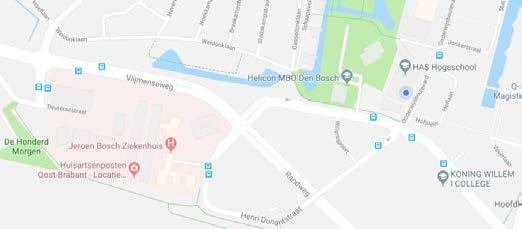
Jeroen Bosch Ziekenhuis
Address: Henry Dunantstraat 1
Postal Code: 5223 GZ
City: ’s-Hertogenbosch
A doctor (general practitioner) is called a ‘huisarts’ in Dutch. Some doctors ask you to make an appointment, others have special consultation slots where you don’t need an appointment (‘inloopspreekuur’). Home visits are only possible for patients whose illness means they are unable to visit the doctor by themselves. In all other cases, you need to make an appointment with the doctor.
When making an appointment, the receptionist will ask you a few questions regarding your symptoms. She is trained to schedule appointments and to give advice over the telephone. She follows a standard protocol that has been drawn up by the doctor, who is jointly responsible for any advice the receptionist gives. Like the doctor, the assistant is also bound by professional confidentiality.
A consultation with a doctor will cost approximately € 35 - € 50. If you have Dutch basic health insurance and are registered with a doctor, you sometimes still need to pay directly (in most cases only possible in cash). If you do not have Dutch health insurance, you will allways be asked to pay in cash on the site. You may be able to claim any costs back from your own health insurance. If you need to see a doctor, you can contact:
Fonkelzorg Den Bosch
Address: Hinthamerstraat 217
City: ‘s-Hertogenbosch
Telephone: 073-6132450
Website: https://fonkelzorg.nl/
If you want to see the doctor, you need to register first, via this link. When making an appointment, make sure you mention that you are a student at HAS green academy. Fonkelzorg has set up a special care process for international
students. They speak several languages in our Medical Contact Center (currently Dutch, English & Polish). If you need to go to the doctor’s, always bring the following with you:
• your Identification Document or passport,
• insurance pass,
• cash (> € 50).
If you need any medication, you can get it at the pharmacy (‘apotheek’). There are several pharmacies in Den Bosch. There is one near HAS University of Applied Sciences, Apotheek West, at the beginning of Copernicuslaan. There is also a pharmacy in the hospital, near the main entrance. Note: for many medicines you need a prescription from your doctor. Medicines that are provided without prescription (such as certain painkillers) can also be bought at cheaper chemist shops such as Kruidvat, Etos, as well as at several supermarkets.
A dentist (‘tandarts’) works by appointment only. A consultation with a dentist can be expensive and is not always covered by your insurance. If you need to go to the dentist always bring the following with you: your Identifi cation Document or passport, Insurance pass, means of payment e.g. a bank pass/debit card or cash. The following dentist is available for international students, who are not registered as a patient:
Centrum voor Tandzorg
Address: Eekbrouwersweg 4
Postal Code: 5233 VG
City: ‘s-Hertogenbosch
Telephone: 073 641 65 65
Email: info@centrumtandzorg.nl
Website: www.centrumtandzorg.nl

Den Bosch city centre offers a wide choice of shops. Most of them are situated around the market square. Here, you’ll find clothes shops, bookshops and various department stores as well as a number of speciality shops. A large market is held in the market square every Wednesday and Saturday. On Friday mornings there is also an organic fruit and vegetable market. Fruit and vegetables are generally cheaper on the market than in the supermarket. Supermarkets in the Netherlands are similar to many others around the world, although generally not on the same scale as the hypermarkets in some countries. As you might expect, they vary in price and quality. Most supermarkets are located in shopping malls or in residential areas. Below is a short list of the most common supermarkets:






Opening hours vary, but they generally open their doors every day at 8 a.m. and stay open until 8 p.m. Some supermarkets have longer opening hours, and many are also open for a limited time on Sundays.
Other useful shops
HEMA
Address: Pensmarkt 36
Type of store: Department store
WIBRA
Address: Vughterstraat 10-16
Type of store: Cheap clothes, stationery, cleaning materials, etc.
Zeeman
Address: Hinthamerstraat 26
Type of store: Cheap clothes, stationery, cleaning materials, etc.
Kruidvat
Address: Hooge Steenweg 3
Type of store: Cheap chemist’s shop)
Sandeep Store,
Address: Vughterstraat 143
Type of store: Food shop
Sonay
Adrress: Chr. Huygensweg 127-129
Type of store: Turkish supermarkt
Asian Supermarket Amazing Oriental
Address: Gruttostraat 37
Type of store: Oriental supermarket
Vindingrijk
Address: Afrikalaan 9a, outside the city centre
Type of store: Second-hand furniture shop)
The library, (‘stadsbibliotheek’), is located in the city centre. It’s a pleasant and quiet place to study, use the internet and read digital newspapers from all over the world. For more information, check out the website.
Address: Hekellaan 2, Postal Code: 5211 LX City: ’s-Hertogenbosch Website: www.bibliotheekdenbosch.nl
Opening hours:
Monday till Saturday: 10.00 – 18.00 hours
Sunday: 13.00 – 17.00 hours
(from September till June)
The Tourist Information Office (VVV) is located in the city centre. VVV ‘s-Hertogenbosch can provide information and give tips and recommendations about the city, the region or the Netherlands in general. In its shop, you’ll find a large selection of cycle routes, walks and bridle trails, books, gift vouchers, maps and souvenirs. VVV ‘s-Hertogenbosch also sells entrance tickets to amusement parks and for local events.
For more information, including opening hours and details of upcoming events in Den Bosch, visit the website: inyourpocket.com For upcoming events in the Netherlands, check out the Holland.com website: holland.com
If you want to watch a movie, you can go to the VUE cinema in Den Bosch, vuecinemas.nl, De Verkadefabriek, verkadefabriek.nl, the Kinepolis Den Bosch, kinepolis.nl, or Theater aan de Parade, theateraandeparade.nl
Den Bosch nightlife has a reputation for its southern friendliness. The bars and clubs area of the city is accessible and easy to find. Once you’ve located the first bar or club, you won’t have any trouble seeing the next one just ahead. The bar owners in Den Bosch are very hospitable, which makes almost every bar worth a visit.


For the Academic Calendar, please check Sharepoint (Menu Schedules & Results).
Team Mobility: Incoming nominations, Inter Institutional Agreements
International office: Admission, accommodation for first year students, visa applications, practical support. For information on who is responsible for which subject, please check HAS Intranet.
Email: studentexchange@has.nl

Cleo Benders

Milicia de Kok

Diana van Kralingen

Marlinde Andersson

Karin Goossens-Kox
Institution’s name
HAS green academy
Visiting address
HAS green academy
Onderwijsboulevard 221, 5223 DE ’s-Hertogenbosch & Spoorstraat 62, 5911 KJ Venlo The Netherlands
Erasmus ID-code
NL S-HERTO01
Webpage HAS green academy
www.has.nl/en
Webpage incoming students
https://www.has.nl/en/bachelors-and-more/information-forexchange-students/
For more information about the application details check out the website ‘How to apply as an exchange student’
Courses
Please see the courses on the website.
Grading distribution table
Please see information on the Dutch Grading System and the HAS Grading Distribution Table
Language requirements
Check the Inter Institutional Agreement for the arrangements that have been made concerning the language requirements.
Academic schedule
Academic schedule
One academic year consist of 4 terms that each take 10 weeks
One academic year consist of 4 terms that each take 10 weeks
Semester 1 Fall 25 August 2025* - 6 February 2026 (term 1 & 2) 15 April 2025 1 May 2025
Semester 2 Spring 9 February 2026 – 17 July 2026 (term 3 & 4) 15 October 2025 1 November 2025
*First week is the Welcome Week
Tuition fees
Students from partner universities are exempted from tuition fees.
Students from partner universities are exempted from tuition fees.
We offer limited mediation of student rooms in ‘s-Hertogenbosch in cooperation with Student Rooms Brabant. Furthermore we offer information on how to find a room by yourself as a student on our website
We offer limited mediation of student rooms in ‘s-Hertogenbosch in cooperation with Student Rooms Brabant. Furthermore we offer information on how to find a room by yourself as a student on our website.
More information?
If you wish to contact HAS green academy, feel free to send an email to studentexchange@has.nl
Team Mobility
Mrs Diana van Kralingen
Ms. Milicia de Kok
Mrs. Cleo Benders
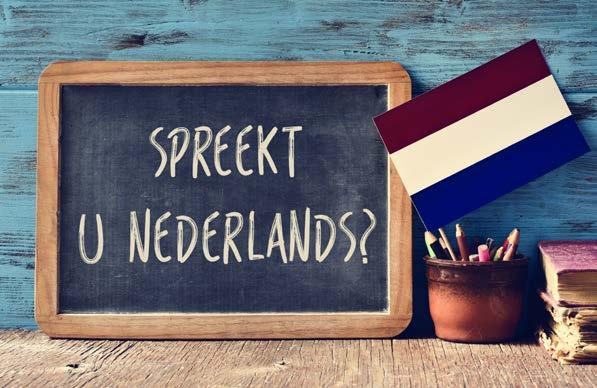
The aim of the society is to make international students feel at home in Den Bosch, create a network of friends that will last a lifetime, and challenge students to grow and develop their talents together at the HAS.
Through social and educational events organized throughout the year using the themes related to the food industry, the International Student Association aims to stimulate students to mingle across various studies and creates an environment
for cooperation and philosophical conversation while having fun.
For more information, or to sign up, contact International Student Association (ISA).
Interested in learning Dutch? Please note that the language course is extra curricular. If you want to sign up, please come by the International Office or send an mail to international@ has.nl
As with many languages, written and spoken Dutch (in particular) often uses a shortened form of a word. Some of the main cases where this happens are given in brackets.
English
I/My
Ik/Mijn (m’n)
You/Your (singular informal) Jij(je)/jouw (je)
He/His Hij/Zijn (Z’n)
She/Her Zij (Ze)/Haar (D’r)
We/Our Wij (we)/Ons/Onze
You/Your (formal singular and plural) U/Uw
You/Your (informal plural) Jullie/Jullie
They/Their Zij (Ze)/Hun
Good morning
Good afternoon
Goedemorgen
Goedemiddag
Good Evening Goedenavond
Goodbye Tot ziens
See you
Dag/Doei
English Dutch
Good Goed
Bad Slecht
Nice/Fun Leuk/Gezellig
English Dutch
I have Ik heb
You have (singular informal) Jij hebt
He/She/It has Hij/Zij/Het heeft
We have Wij hebben
You have (plural informal) Jullie hebben
You have (singular and plural formal) U heeft
They have Zij hebben
English
Dutch
I am Ik ben
You are (singular informal) Jij bent
He/She/It is Hij/Zij/Het is
We are Wij zijn
You are (plural informal) Jullie zijn
You are (singular and plural formal) U bent
They are Zij zijn
English Dutch
I want Ik wil
You want (singular informal) Jij wilt
He/She/It wants Hij/Zij wil
We want Wij willen
You want (plural informal) Jullie willen
You want (singular and plural formal) U wilt
They want Zij willen
English Dutch
January januari
February februari
March maart
April april
May mei
June juni
July juli
August augustus
September september
October oktober
November november
December december
English Dutch
Monday maandag
Tuesday dinsdag
Wednesday woensdag
Thursday donderdag
Friday vrijdag
Saturday zaterdag
Sunday zondag
Today vandaag
Yesterday gisteren
The day before yesterday eergisteren
Tomorrow morgen
The day after tomorrow overmorgen
Next week volgende week
Now nu
Later straks/later
English Dutch
trousers de broek (singular)
the trousers are too big/too small de broek is te groot/te klein
shoes de schoenen
sweater de sweater/trui
How much is it? Hoeveel kost het?
Where can i pay? Waar kan ik betalen?
May I ask you something?
Mag ik u iets vragen?
English Dutch train ticket treinkaartje
return retourtje
single ticket enkeltje from/to van/naar
platform perron/spoor to leave from vertrekken van to arrive aankomen
bus stop bushalte left links right rechts turn right rechtsaf turn left linksaf
straight on rechtdoor go back ga terug to cross over oversteken roundabout rotonde traffic lights stoplicht exit uitgang entrance ingang open open closed gesloten/dicht
English Dutch
me sir/madam Pardon meneer/mevrouw
Where is... Waar is...?
Please Alstublieft (formal)
Alsjeblieft (informal)
Thank you
Dank u wel (formal)
Dank je wel (informal)
Thanks Bedankt
the station het station
the bank de bank
supermarket supermarkt
bakery de bakker
butcher de slager
greengrocer de groenteboer
cheese shop de kaasboer
fishmonger de visboer
flower shop de bloemist
bike shop de fietsenwinkel
bike repair shop de fietsenmaker
pharmacy de apotheek
the post office het postkantoor
the Tourist Information de VVV
bookshop de boekhandel
